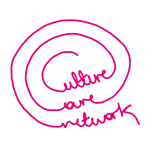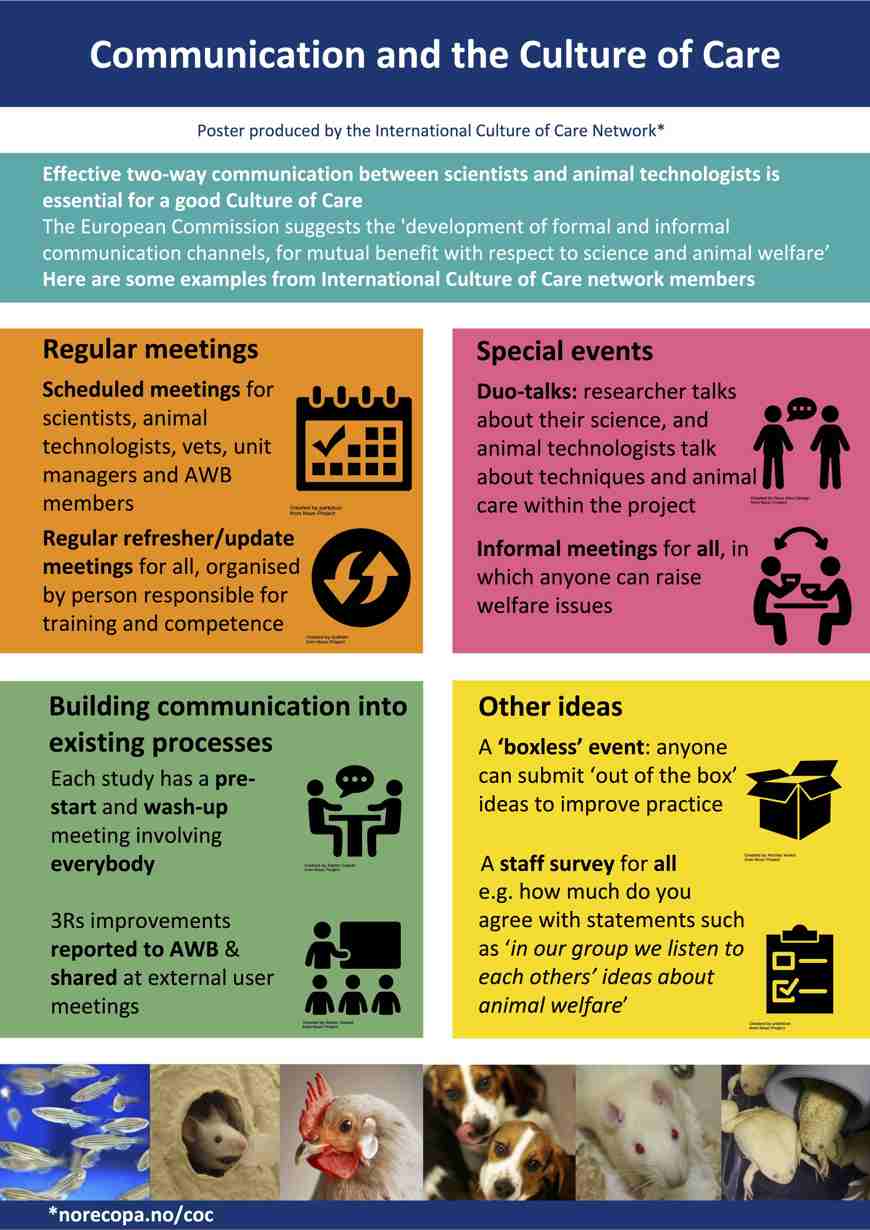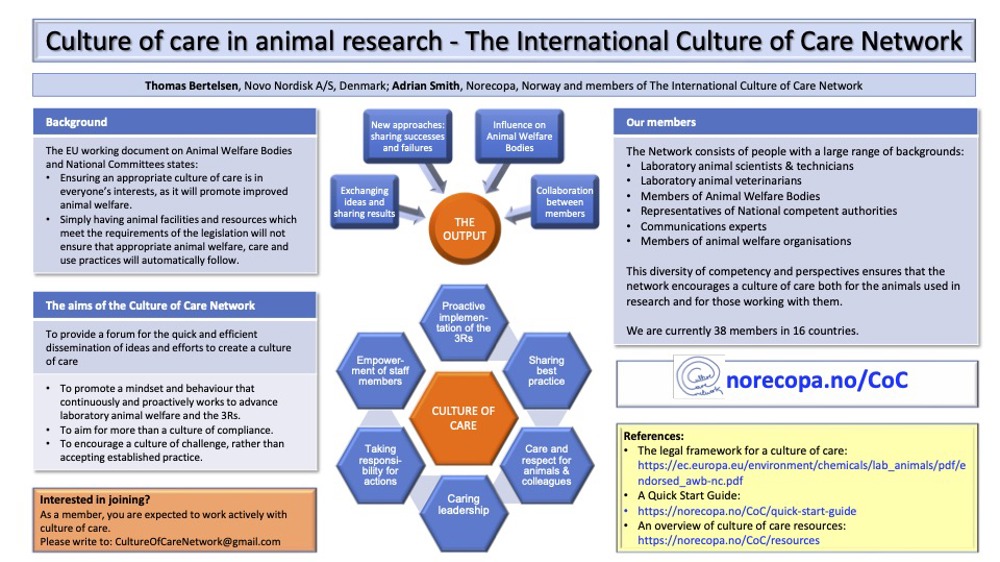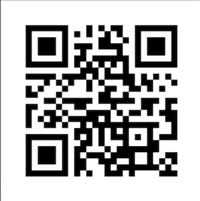This section explains what is meant by a Culture of Care, and why it is important.
It is also the website of the International Culture of Care Network: norecopa.no/CoC
Short cuts:
- A Quick Start Guide on how to encourage a Culture of Care
- A practical guide for animal care staff
-
Resources produced by Network members and others, including a section on Empathising with Animals
Frequently Asked Questions:
1. What is a Culture of Care?
The term Culture of Care is used in the laboratory animal community to indicate a commitment to improving animal welfare, scientific quality, care of the staff and transparency for the stakeholders. Each user establishment will have its own way of conveying its culture of care. However, the goal of the Network is to
- promote a mind-set and behaviour that continuously and proactively works to progress and promote laboratory animal welfare and the Three Rs
- go to a level above and beyond a culture of compliance
- include a culture of challenge
2. Is a Culture of Care mentioned in EU Directive 2010/63?
Not specifically in any Article, but it is mentioned in the recitals (preamble) before the Directive text (as a 'climate of care'), and also in Guidance Documents produced by the EU Commission and endorsed by the Competent Authorities in the Member States. These texts provide good advice on how to implement a culture of care in any country, not just EU Member States.
There is a need for tangible examples of behaviour-driven lab animal welfare improvements that demonstrate to society an accountable use of laboratory animals. The review of Directive 2010/63/EU which was due by November 2017 called for examples of animal welfare improvements generated by user establishments.
3. What is a Culture of Challenge?
This is closely related, and is all about looking for the acceptable, rather than choosing the accepted (Louhimies, 2015). Comments like "because we've always done it that way" or "as often as necessary" are good opportunities to discuss whether they may be better ways of performing the task in question. The Three S's of Carol Newton are also very relevant here.
4. What is the International Culture of Care Network?
The primary role of the network is to share and publish examples of activities fostering a Culture of Care which make a difference in terms of improved animal welfare and human wellbeing. Network members include representatives of many professions:
- In vivo technicians
- Lab animal veterinarians
- Members of animal welfare bodies
- Representatives of competent authorities
- Communications experts
- Members of animal welfare organisations
The countries represented in the network can be seen on this virtual map.
If you are interested in learning more, please contact the Network at CultureOfCareNetwork@gmail.com. If you do not get a reply from this email address, please contact Adrian Smith.
The Network was originally proposed by Thomas Bertelsen at the FELASA Congress in Brussels in June 2016, where there were 7 presentations on the subject. Established in September 2016, there are currently 57 individual members from 14 countries in the Network (June 2024). The Network does not, at present, issue a newsletter or have any type of public forum other than presentations at scientific meetings.
Literature and other resources produced by Network members and others.
 The International Culture of Care Network
The International Culture of Care Network

Click here to download a pdf file of the poster.

Poster about the Culture of Care Network at the virtual UFAW Annual Conference, 29 - 30 June 2021. This poster may be downloaded here.
 QR code to access this page
QR code to access this page
Thanks for your feedback! Please note that we cannot reply to you unless you send us an email.
What are you looking for?
We value your feedback so we can improve the information on the page. Please add your email address if you would like a reply. Thank you in advance for your help.!
Please contact us by email if you have any questions.
